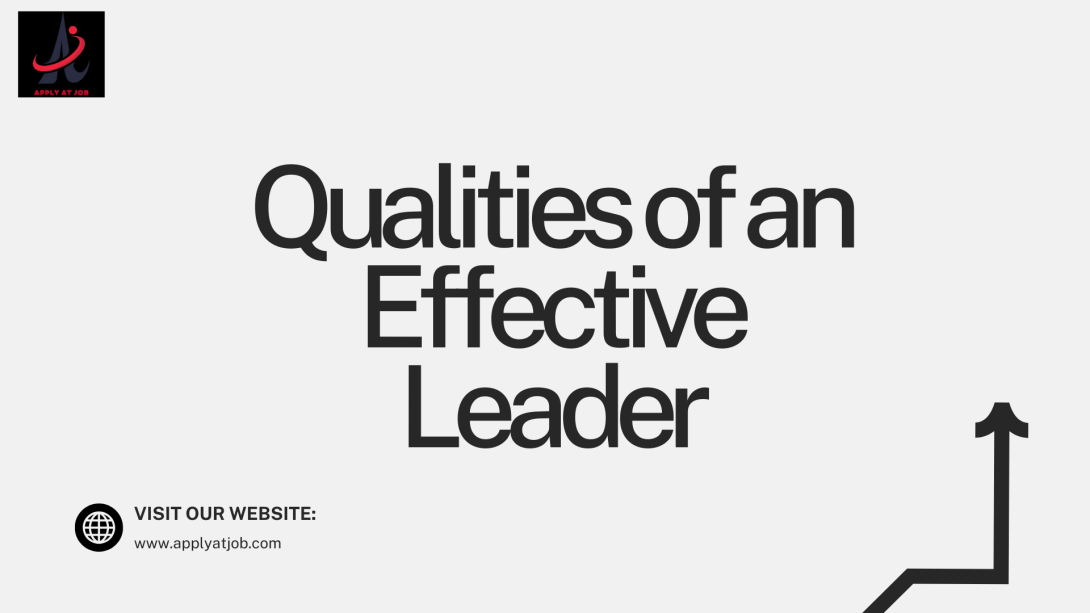
Characteristics of a Successful Leader: Essential Features for Motivating Achievement
Strong leadership is the foundation that propels development, creativity, and employee engagement in every firm. Successful leaders inspire, motivate, and foster a culture of cooperation and trust in addition to managing responsibilities. However, what constitutes a genuinely effective leader? This blog examines the essential characteristics of exceptional leadership and provides advice on how to cultivate them.
1. Forward-thinking
A good leader knows exactly where they want their group and company to go. They are able to establish lofty objectives, understand the broad picture, and design a plan to reach them.
. Spend time establishing long-term objectives: studying market trends, and thinking about how your job fits into the larger objectives of the company in order to cultivate visionary thinking. The team will remain motivated and focused if this goal is regularly communicated.
As an illustration, consider Steve Jobs, the co-founder of Apple, who had a remarkable knack for seeing the possibilities in technology and developed a futuristic vision that connected with people all over the world.
2. Honesty
Trust is the cornerstone of integrity and is necessary for good leadership. Honest, open, and self-accountable are traits of leaders with integrity. They set an example by acting morally in every circumstance.
. Advice: Show integrity by acting and speaking consistently. Acknowledge errors when they occur and demonstrate that your team culture values accountability.
For instance: the previous CEO of Starbucks, Howard Schultz, placed a strong emphasis on moral obligation, particularly in times of crisis, which preserved staff and consumer confidence.
3. EQ, or emotional intelligence
The capacity to comprehend, control, and sympathize with the feelings of others is known as emotional intelligence. High EQ leaders are adept at resolving disputes, navigating interpersonal interactions, and establishing solid, dependable bonds with their people.
. Advice: By exercising empathy, paying attention to what your team has to say, and being conscious of your own feelings and triggers, you may increase your emotional intelligence. If you want to enhance your communication approach, think about asking for feedback.
As an illustration: Oprah Winfrey is well known for having a high level of emotional intelligence, which enables her to establish strong bonds with both her staff and audience.
4. Making decisions
Even in the face of uncertainty, competent leaders make decisions with assurance. They compile pertinent data, consider their alternatives, and then act without hesitation. Teams that are decisive avoid stagnation and continue to advance.
. Advice: To gain confidence, practice making rapid, little judgments. Effective leaders know that sometimes progress is more essential than perfection, so when confronted with a big choice, concentrate on obtaining the most crucial facts first and don't worry about perfection.
For instance: the "70% rule," which advocates making decisions when you have around 70% of the knowledge you wish you had, and Jeff Bezos's action-oriented bias are well-known. Bezos is the creator of Amazon.
5. Adaptability
Leadership inevitably involves challenges, and resilient leaders are able to overcome setbacks with a positive outlook. They swiftly adjust, see errors as teaching opportunities, and support their colleagues in doing the same.
. Tip: Develop a growth attitude to increase resilience. Examine what went wrong, what can be done better, and what lessons may be used in similar circumstances in the future. Motivate your group to view obstacles as chances.
As an illustration: consider Elon Musk's tenacity in handling a variety of difficulties, such as SpaceX rocket explosions and Tesla manufacturing delays. His tenacity has enabled him to create innovative businesses.
6. Responsibility
Building a culture of trust requires accountability. In order to foster an atmosphere where everyone feels ownership over their contributions, effective leaders hold both themselves and their teams accountable for their activities.
. Advice: Give regular feedback and establish clear goals for both you and your staff. Acknowledge successes and constructively discuss errors, putting more emphasis on fixes than assigning blame.
For instance: Microsoft CEO Satya Nadella promoted an accountable culture that boosted staff morale and the company's inventive spirit.
Developing into a Successful Leader: An Ongoing Process
Being a great leader is a process rather than a final goal. You can motivate your group, foster trust, and guide your company to success by cultivating these traits. Keep in mind that being a leader is about encouraging people, being flexible, and constantly trying to become better—not about knowing everything.
Any existing or prospective leader must possess the attributes listed below. These qualities will enable you to make a good influence, encouraging development, creativity, and a collaborative culture, regardless of the size of the team you are managing.
You can visit our site: Applyatjob.com
https://applyatjob.com/hiring-employee
https://applyatjob.com/jobs




